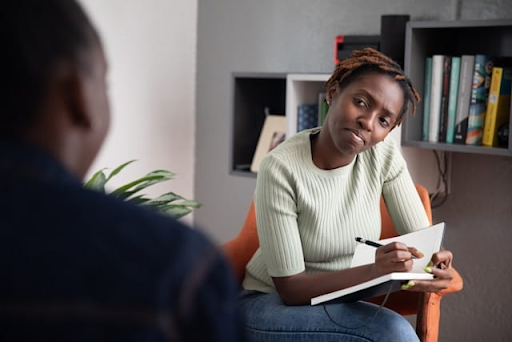Mental health care plays a crucial role in healing, but representation within therapy remains deeply unequal. Black communities often face barriers when seeking treatment, with limited access to culturally competent providers. This lack of representation impacts trust, comfort, and effectiveness. At Ravoke, we recognize this as a crisis that must be addressed urgently to ensure equitable, accessible, and compassionate care for all individuals regardless of race or background.
Understanding The Roots Of Representation Gaps
The shortage of Black therapists is not accidental but rooted in systemic barriers. Economic disparities, lack of mentorship, and underrepresentation in higher education pipelines prevent many from entering the field. As a result, Black clients encounter difficulty finding therapists who share their cultural perspectives. Ravoke emphasizes that acknowledging these structural challenges is essential to creating pathways for diversity in mental health care across the world.
Why Representation Truly Matters In Therapy
Representation influences how comfortable clients feel sharing their struggles. When therapists reflect cultural backgrounds, patients experience greater empathy, understanding, and trust. For Black clients, this connection reduces the burden of explaining lived realities like racism, microaggressions, or generational trauma. Ravoke highlights that effective therapy depends not only on clinical skills but also on cultural resonance. True healing requires providers who can understand more than symptoms—they must understand context.
Cultural Stigma And Community Barriers Today
Mental health stigma remains strong in many Black communities, where therapy is sometimes seen as weakness. Historical mistreatment by medical institutions adds further distrust. This dual challenge discourages individuals from seeking help even when it’s needed. Ravoke encourages open dialogue, community-based education, and culturally sensitive outreach to reduce stigma. When combined with better representation, these strategies create safer spaces where Black voices can be heard and respected.
The Psychological Toll Of Underrepresentation
When Black individuals cannot access relatable therapists, they risk feeling isolated in the healing process. Therapy becomes another place where they must educate rather than be supported. This emotional labor can discourage engagement and exacerbate struggles. Without representation, care is incomplete. Ravoke stresses that the absence of Black voices in mental health not only affects individuals but also weakens the broader healthcare system’s ability to serve effectively.
Expanding Pathways Into Mental Health Careers
To fix the crisis, systemic solutions are required. Scholarships, mentorship programs, and community partnerships can encourage more Black students to enter psychology and counseling fields. Universities must address biases in admissions and provide support for diverse candidates. Ravoke supports initiatives that invest in representation, not as tokenism, but as a structural commitment to equity. Change begins with building strong pipelines that reflect the communities they are meant to serve.
Policy Reforms And Structural Change Needed
Representation issues cannot be solved without larger policy interventions. Funding for minority mental health initiatives, incentives for culturally competent training, and expanded insurance coverage are critical. Public health agencies must prioritize addressing disparities in access and workforce diversity. Ravoke advocates for policies that elevate marginalized voices, ensuring systemic change. Without reform, representation will remain a conversation rather than a transformation in mental health care delivery.
The Role Of Black-Led Healing Spaces
Grassroots organizations and community-driven initiatives have stepped in where mainstream therapy falls short. Black-led wellness groups, church-based counseling, and peer support networks provide culturally grounded care. These spaces validate experiences often overlooked in traditional systems. Ravoke values these initiatives as vital complements to clinical therapy, proving that healing can be both professional and community-rooted. Supporting such spaces ensures Black voices are not missing but central to mental wellness.
Ravoke Advocates Representation And Holistic Healing
At Ravoke, we believe representation is more than numbers—it is about building systems of trust, equity, and belonging. Healing requires diverse providers who see patients fully, not partially. Our mission is to amplify awareness, empower underrepresented voices, and champion equity in health care. By addressing the crisis of missing Black voices, Ravoke calls for collective responsibility to create a future where therapy reflects and respects everyone.
Conclusion: Building An Inclusive Future Together
The absence of Black representation in mental health care is more than a workforce issue—it is a barrier to healing and equity. True progress requires breaking stigma, reforming systems, and empowering new generations of therapists. At Ravoke, we see representation as a cornerstone of holistic wellness. By amplifying missing voices and creating inclusive care, we can move closer to a world where therapy is healing for everyone.


